By Miranda Hendry
Early on a Wednesday morning in the hustle and bustle of central Sydney, a group of enthusiastic health professionals gathered to discuss the subject of health in Australia’s society and what the future holds for its population. It was held in a community centre that was newly renovated into an artistic green and open space for innovative thinkers. The morning fresh air, coming in through the rooftop garden doors, filled our minds with energy and attentive power with which to listen to various inspirational talks by professionals in their respective fields of work, including architecture, urban housing and aged care facilities – all presenting their work with the aim of improving environmental and population health.
As a public health student, I continue to be a strong advocate for ‘green energy’ and how to integrate it into everyday community activities. When building new hospitals (e.g. the new Northern Beaches Hospital in Frenchs Forest), we could for instance use solar panels and community vegetable gardens. Hence, one of my favourite moments in this LFIA forum was learning about the ‘Red list’ and the idea of ‘Declare’ labels. This is a similar layout to the nutritional information given to us on supermarket food label except that, the ‘Declare’ label lists the construction materials including their components, ingredients and sources. These increase awareness of any toxicity which may for instance enter the food chain or cause air pollution.
Another interesting suggestion during the forum was the idea of appointing a cultural concierge within our institutional aged-care homes. This lateral thinking initiative has been created in the hope of improving psychosocial care to help alleviate problems such as isolation, depression and loneliness among our precious elderly communities. Due to the fact that Australia’s ageing population is ever growing, in future it may be all too easy for our seniors to be seen as just a number in big institutions when we don’t fully understand or appreciate the richness of all their cultures and life experiences. Yet highlighting the varied nature of individual’s life achievements and possibly mixed national identities may well promote more positive interactions between carers and residents.
This was the first time I participated in an interactive forum like this one and only heard it from suggestion by my university but highly recommend going to any future events by LFIA for anyone who is simply interested in new ideas coming fresh from academic research and projects.
More about the event and speakers.
[siteorigin_widget class=”SiteOrigin_Widget_Image_Widget”][/siteorigin_widget]
[siteorigin_widget class=”SiteOrigin_Widget_Image_Widget”][/siteorigin_widget]
[siteorigin_widget class=”SiteOrigin_Widget_Image_Widget”][/siteorigin_widget]

